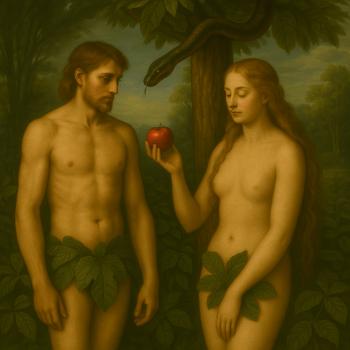There are more than 45,000 forms of Christianity worldwide, and they disagree on the fundamentals. What beliefs are fundamental to Christianity?
I used to attend a Disciples of Christ church, founded by Barton Stone and Thomas Campbell almost 200 years ago. Stone questioned much Christian orthodoxy, including the Trinity and atonement. When one of the current members of our church wondered what beliefs are fundamental to Christianity, she insisted, “Surely, we all agree on the Trinity!?!”
I reminded her that one of the original Disciples questioned the doctrine of the Trinity. “What?!?” she exclaimed. “Which of the twelve apostles did not believe in the Trinity?” I was talking about Stone, I replied. None of the twelve apostles believed in the Trinity; the Trinity was a fairly late development, and the doctrine was not clarified until the fourth-century church councils.
(Scholars date the Didache, which is often called the first Christian catechism, late in the first century. Jesus is mentioned in prayers to God as “Jesus, Thy Servant.” Certainly “Jesus, Thy Servant” in the Didache is a long way from “The way, the truth, and the life” in the Gospel of John. The Gospel of John was probably written after the Didache, for a different community.)

Does it Matter?
Many Christian denominations are creedal, and they recite creeds such as the Nicene Creed. This creed is trinitarian. God the Father is described as the creator of the universe. Jesus is described as his only-begotten Son. This creed states that Jesus was born of a virgin and resurrected from the dead. The Holy Spirit is said to proceed from the Father and the Son.
Today, fewer people believe in personal gods, virgin births, and physical resurrections. Many people believe that God is impersonal and that Jesus’ birth and resurrection are symbolic. Many people (like Barton Stone, 200 years ago) question ancient doctrines like the Trinity and the atonement. Every institution (except the church) reviews its beliefs and practices periodically.
Modern people are more perplexed than convinced by the abstract philosophical concepts that intrigued the Iron Age bishops in Nicaea. Does it matter if Jesus was “begotten, not made,” as opposed to “made, not begotten” or “both begotten and made” or “neither begotten nor made?” Does it matter if the Holy Spirit proceeded solely from the Father, as Eastern Christians insist?
“False Fundamentals”
My intent is not to convince or unconvince anyone of anything. Reasonable people can disagree. The point of the post is that even Christians disagree. Because of these disparities in beliefs, it is more accurate and helpful to discuss “Christianities,” rather than “Christianity.” We all think that our beliefs are normative. In fact, there is no such thing as “normative.”
The key question is “Does it matter?” The late progressive Christian author Rachel Held Evans once lamented the “false fundamentals” that have overshadowed Jesus’ words and works:
“It seems that a whole lot of people, both Christians and non-Christians, are under the impression that you can’t be a Christian and vote for a Democrat, you can’t be a Christian and believe in evolution, you can’t be a Christian and be gay, you can’t be a Christian and have questions about the Bible, you can’t be a Christian and be tolerant of other religions, you can’t be a Christian and be a feminist, you can’t be a Christian and drink or smoke, you can’t be a Christian and read the New York Times, you can’t be a Christian and support gay rights, you can’t be a Christian and get depressed, you can’t be a Christian and doubt. In fact, I am convinced that what drives most people away from Christianity is not the cost of discipleship but rather the cost of false fundamentals.”
Next time you are asked to recite a creed, ask yourself at every phrase 1) whether you really believe it and 2) whether it really matters if you do. For some, the only reliable statement in the creed is “crucified under Pontius Pilate, he suffered death and was buried.” Others even question that, wondering if Jesus of Nazareth was a historical person, based on the scant historical record.
Imagine that…
I believe that Jesus existed, and I am inspired by his words and works. However, I do not believe that Jesus or his earliest followers thought that he was God. In The Way, I suggest:
- Imagine that Jesus was not born of a virgin; instead, he was conceived the normal way. In some ways, that is an even more powerful story.
- Imagine that Jesus was not the second person of the Trinity; instead, he was of the same mind of God, but not of the same nature. In some ways, that is an even more powerful story.
- Imagine that Jesus was not resurrected; instead, he appeared in visions (as he appeared to Paul) to 500 people. In some ways, that is an even more powerful story.
If Jesus was born as a man, lived as a man, and died as a man (albeit a very special man), would any of us live our lives any differently? If Jesus was not born of a virgin, if he was not divine, if he was not resurrected, would the wisdom of his words and the power of his works lose their allure, or would we follow a historical Jesus as gladly as we follow a mythologized Jesus?
There are more than 45,000 forms of Christianity, and they disagree on the fundamentals. What beliefs are fundamental to Christianity?
If you want to stay up to date on the latest from You Might Be Right, simply subscribe with your email.














